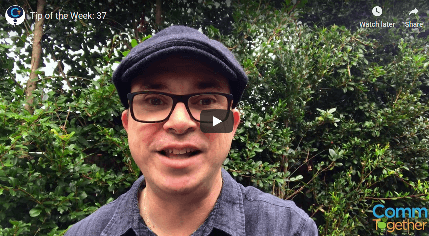
There is an old and poignant expression, “you don’t get a second chance to make a first impression.”
It is so important to make sure the first impression you make as a business is the right one. That means constantly refining your messages. In other words, listening and responding to your audience.
While you don’t get a second chance at a first impression, you do get more chances to make a first impression on new people. If you have not learnt from your previous experiences then your mistakes will continue to haunt you and restrict your potential growth.
If you are lucky enough to entice people back for a second impression, the same rules apply – show you have listened and responded. You also need to give them something new and fresh to look at that gives you increasing relevance to your audience.
For many if not most businesses these days the first impression is online. People research and shop for products, services and recommendations online before they engage with an actual person or visit a physical site.
I am going to put myself up as an example here. When I launched CommTogether in April 2011, I had three options with regards to a website:
1. Put up a page which says “new website under construction, please come back soon.”
2. Have no website presence at all until a full site is ready
3. Launch a temporary website.
Clearly I chose option 3, because as a start-up business it is first and foremost important to be found. Having nothing was never an option and an under construction page does little to advance your cause. While I build my permanent site I have the advantage of building an audience and listening to their feedback to refine my own messages.
I have said many times in previous posts, communications is central to the critical success of any business or not-for-profit organisation.
In the majority of cases people now look and in many cases go on to shop for products, services and recommendations online. So staying relevant and constantly updating your site is critical – because it is a first impression and then a constant point of reference to your audience. It takes time and effort to maintain this level of communication. The degree of investment is of course dependent on the nature of the business or NFP, but some form of regular update is always essential.
While few of us would attempt to rewire a house without professional assistance, the same is important to recognise with communications. Many people will need to invest in some professional expertise to assist with generating up-to-date and relevant content as well as refining your ability to listen to the changing needs of your audience. Don’t forget you should also keep those recommendation visible.
By putting communications at the bottom of the heap or thumbing your nose at at its relevance, you are running the risk of missing valuable opportunities while your competition pounces.
